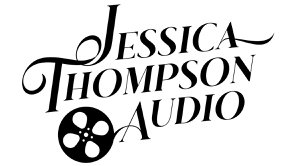I had the pleasure of speaking with Ariella Sosis about my job and my experiences as a woman in the music industry for her project Womyn In Music. Thanks to Ariella for helping me continue to promote "the radical idea that being a woman audio engineer is a totally normal thing."
We Eat The Same Soup
I swear, I once overheard a hip hop song with the lyrics "we eat the same soup." Times like these, I choose to believe that song really exists.
Addendum to Working Class Audio Podcast
I had such a great conversation with Matt Boudreau on the Working Class Audio podcast, and I'm thrilled to have struck a chord with listeners who are interested in learning more about archiving. Of course, as I was riding my bike back to work, I thought of a dozen things I wish I'd said. Here are a few of them:
1. I cautioned about dabbling in mastering and archiving, and this is something about which I feel quite strongly. Mastering requires a specific, learned way of listening and of understanding music, aesthetics, contexts and how they intersect with audio processing technologies. It requires a deep knowledge of delivery methods and a commitment to quality and quality control. Likewise, archiving analog audio requires more than simply knowing how to calibrate a tape machine. You have to understand the history and sonic peculiarities of various media formats, the aesthetics of historic audio, what it sounds like when your heads need to be demagnetized or your azimuth adjusted. You have to be able to intuit what the recording should or could sound like and aim to achieve that. In archiving, the stakes are high. If you do it wrong, then, quite possibly, it will always be wrong. (Aside: this is why I'm so supremely proud of the work I did with Jamie Howarth on Erroll Garner's The Complete Concert By the Sea - because we got it right). The skills that make one an amazing tracking or mixing engineer or a great musician - they are invaluable, but they don't directly translate to mastering and archiving. (The converse is true too - I would not attempt to record your band's next album, and you do not want to hear me play guitar). I would never dissuade anyone from pursuing a specialty in music that I love and value. But if you want to master records or archive audio, then I urge you commit to doing it fully.
2. For those who are interested, there are lots of resources available for archivists. Check out:
AV Preserve - I use BWF MetaEdit all the time, and they have a treasure trove of open source resources for archivists.
Arnold Magnetic Technologies - There was a lot of interest in the tool I affectionally call "Arnold." It's actually known as the B-1022 Magnetic Viewer, but don't let the boring name fool you. It's awesome.
Here's the AES white paper: Recommendation for delivery of recorded music projects. Learn how to name your digital audio files!
Some brilliant people from Indiana University and Harvard University wrote Sound Directions, 168 pages of information about best practices in audio archiving and preservation. It's a page turner! I'm not kidding.
3. Ask the experts for advice when you need it. I've been doing this for more than a dozen years, but that's a drop in the bucket compared to many experts in this field. I will be the first to admit that there is so much I don't know about archiving and about obsolete recording formats. I've carved a niche for myself as someone who understands the crossover between the music industry and archives, between aesthetics and technology, and can therefore navigate and guide others through the process of archiving their music and curating and preparing it for commercial release. But I will always call for help when I come across something that is beyond the scope of my expertise.
That said, I love this speciality. I'm grateful I was given opportunities early in my career to develop the skills, mindset, dedication and passion that make me good at what I do. And with that, there are tapes in my baker that need to be transferred.
Thanks to all who listened to the podcast! Always happy to hear from you and chat about the art and science of mastering and archiving.
